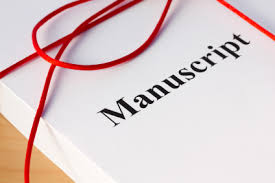Book editing is both a craft and a discipline, and self-editing can be a tedious task not every writer is cut out for.
Writers face unique challenges in starting and finishing projects. At one time or another, all of us encounter the dreaded writer’s block. Just staring at a blank page can be one of the most frustrating and frightening things.
Perhaps an even more crippling problem is self-editor’s block.
The writing stage can be exhilarating. Writing page after page and having something tangible in hand – a manuscript – feels like such an accomplishment. But as much as we might like to think we’re done when we’ve finished writing, there’s still much to do. It’s the book editing phase, where we produce subsequent drafts and revisions – quite literally re-seeing and making the necessary big changes to produce a great manuscript – that separates the amateurs from the professionals.
Editing can be harder than writing because we grow to love our creations, and we often have difficulty seeing them objectively. We have a hard time destroying the little superfluous bits that keep our manuscripts from greatness because it feels like we’re destroying pieces of ourselves.
We might know this, but not know how to push beyond our own self-imposed boundaries. This is self-editor’s block in a nutshell: being satisfied with something we’re not so sure we should find satisfactory. Good self-editing is a skill that’s nurtured and developed through practice and study.
Just like writing, editing is both a craft and a discipline. Just like any craft, there are tools that make the job easier. Writers have long used beta readers to test chapters, plotlines, and concepts. We know that good edits are made because they enhance the experience of the reader.
Here’s where another stumbling block comes along: finding readers who know enough about writing and storytelling to make informed suggestions about what works and what doesn’t with our story.
Getting a truly unbiased assessment from people we know can be pretty difficult. No one wants to hurt our feelings or discourage us. If we’re considering submission of our work to an editor, we want it to be as clean as possible so that the editor can offer advice on revision, creative input, and critical perspective instead of pointing out a bunch of minor errors.
We know that doing as much self-editing as possible is the key to getting the most out of an editor for hire.
Luckily, writers today live in a digital age, which not only makes finding beta readers easier, it also helps provide the tools to become a stronger, smarter self-editor. To that end, editing software is a tool that can help you self-edit to the point where a good manuscript becomes great and ready for the next step.
Probably one of the biggest obstacles to self-editing is deciding where to begin, but with the impartial critical eye of an algorithm-based application, you’ll have the traction you need to get started with suggestions for improvement in every area. Imagine taking the most impactful principles of self-editing and automating tasks that would be considered drudgery by many.
Familiarizing yourself with the guidelines for successful revisions will help you make the most of what you can do with editing software such as AutoCrit.

 RSS Feed
RSS Feed
